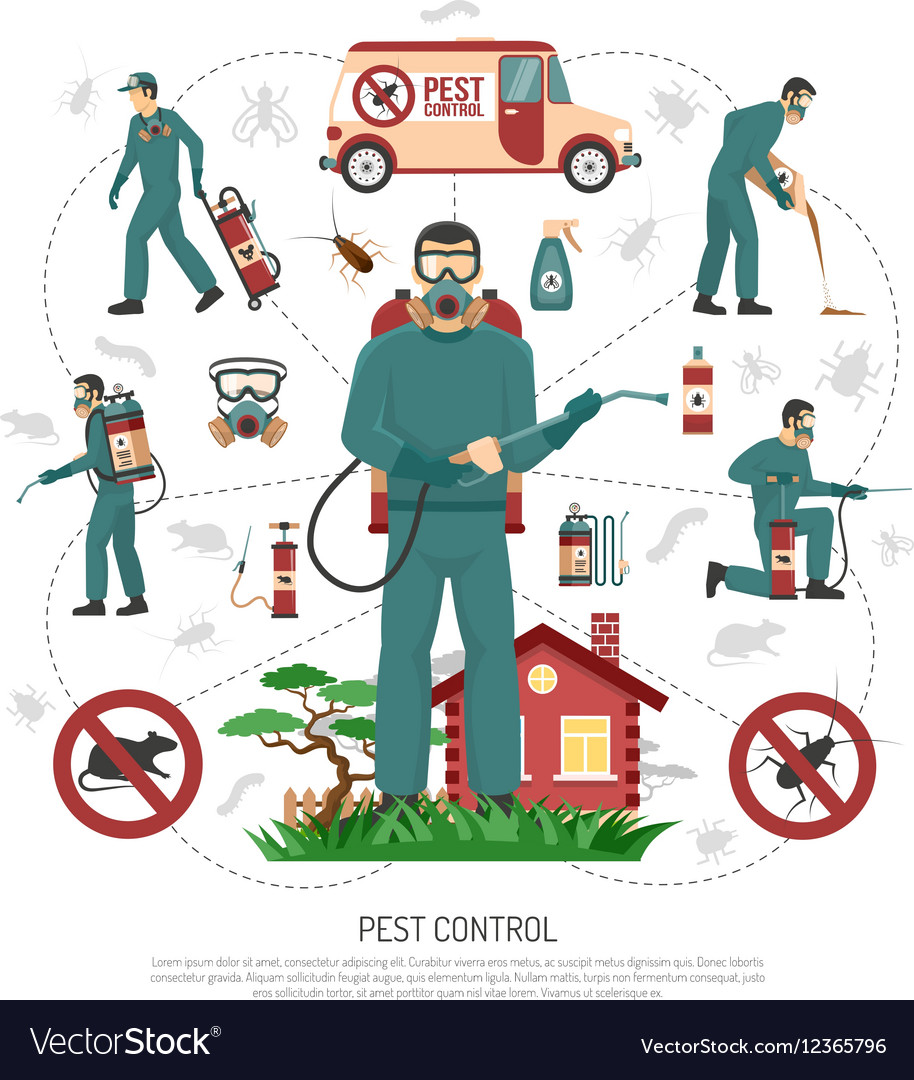Pest-Proofing Your Yard: Tips For Keeping Outdoor Insects At Bay
Pest-Proofing Your Yard: Tips For Keeping Outdoor Insects At Bay
Blog Article
Write-Up Writer-Frandsen Fyhn
Visualize your yard as a refuge, a place of harmony and elegance. However, the visibility of outdoor parasites can promptly interrupt this idyllic image. What happens if there were pest control company near me yet reliable means to keep these unwelcome site visitors at bay and shield your yard oasis? By complying with a few useful tips and applying all-natural methods, you can produce a harmonious exterior area where your plants can thrive undisturbed.
Natural Insect Deterrents
To maintain bugs far from your garden naturally, plant fragrant natural herbs like mint and lavender. These fragrant plants not just add charm to your garden yet likewise serve as reliable bug deterrents. Parasites like mosquitoes, flies, and even some garden-damaging pests are driven away by the solid fragrances given off by these herbs. Merely placing them strategically around your yard can assist create an all-natural obstacle against unwanted insects.
In addition to mint and lavender, consider planting other herbs like rosemary, basil, and lemongrass to additionally improve your garden's pest-proofing capacities. These herbs not only work as all-natural repellents however additionally have the included advantage of working in cooking or crafting home made remedies.
Strategic Plant Positioning
Take into consideration the format of your yard and the sorts of plants you need to tactically put them for maximum pest-proofing efficiency.
Start by organizing plants with comparable resistance to parasites with each other. By doing this, you can create a natural barrier that hinders pests from spreading throughout your yard.
In addition, positioning pest-repelling plants like marigolds, lavender, or mint near more vulnerable plants can help shield them. deans pest control the villages , such as sunflowers or corn, can function as a shield for shorter plants versus pests like rabbits or ground-dwelling bugs.
Remember to leave adequate room between plants to enhance air blood circulation and lower the danger of diseases that pests may carry.
Moreover, consider planting strong-smelling herbs like rosemary or basil near prone plants to confuse insects' senses and make it harder for them to locate their targets.
Reliable Pest Control Approaches
For combating yard parasites successfully, executing a multi-faceted parasite control strategy is necessary. Begin by urging all-natural killers like birds, ladybugs, and praying mantises to help maintain insect populations in check. Introducing plants that draw in these beneficial insects can aid in insect control. Additionally, practicing great garden hygiene by getting rid of debris and weeds where insects could conceal can make your garden much less friendly to undesirable site visitors.
Take into consideration making use of physical obstacles such as row cover textiles or netting to secure susceptible plants from parasites like caterpillars and birds. Applying natural chemicals like neem oil or insecticidal soap can also be effective against certain bugs while being much less harmful to helpful insects and the environment. It's important to rotate your crops each period to stop the build-up of insect populations that target specific plants.
On https://www.obxtoday.com/approaching-easter-nc-wildlife-reminds-public-to-resist-the-urge-to-rescue-baby-wildlife/ evaluate your plants for signs of parasite damages so you can act promptly. By combining these approaches and staying vigilant, you can efficiently control yard pests and delight in a growing, pest-free garden.
Verdict
So, there you have it - with the appropriate approaches, you can keep pesky outdoor parasites away from your garden and aid your plants thrive.
Did you understand that planting mint has been revealed to ward off mosquitoes and other bugs, reducing the requirement for harmful chemicals by as much as 60%?
By incorporating natural deterrents and smart planting methods, you can create a gorgeous and pest-resistant yard oasis for you to enjoy.
